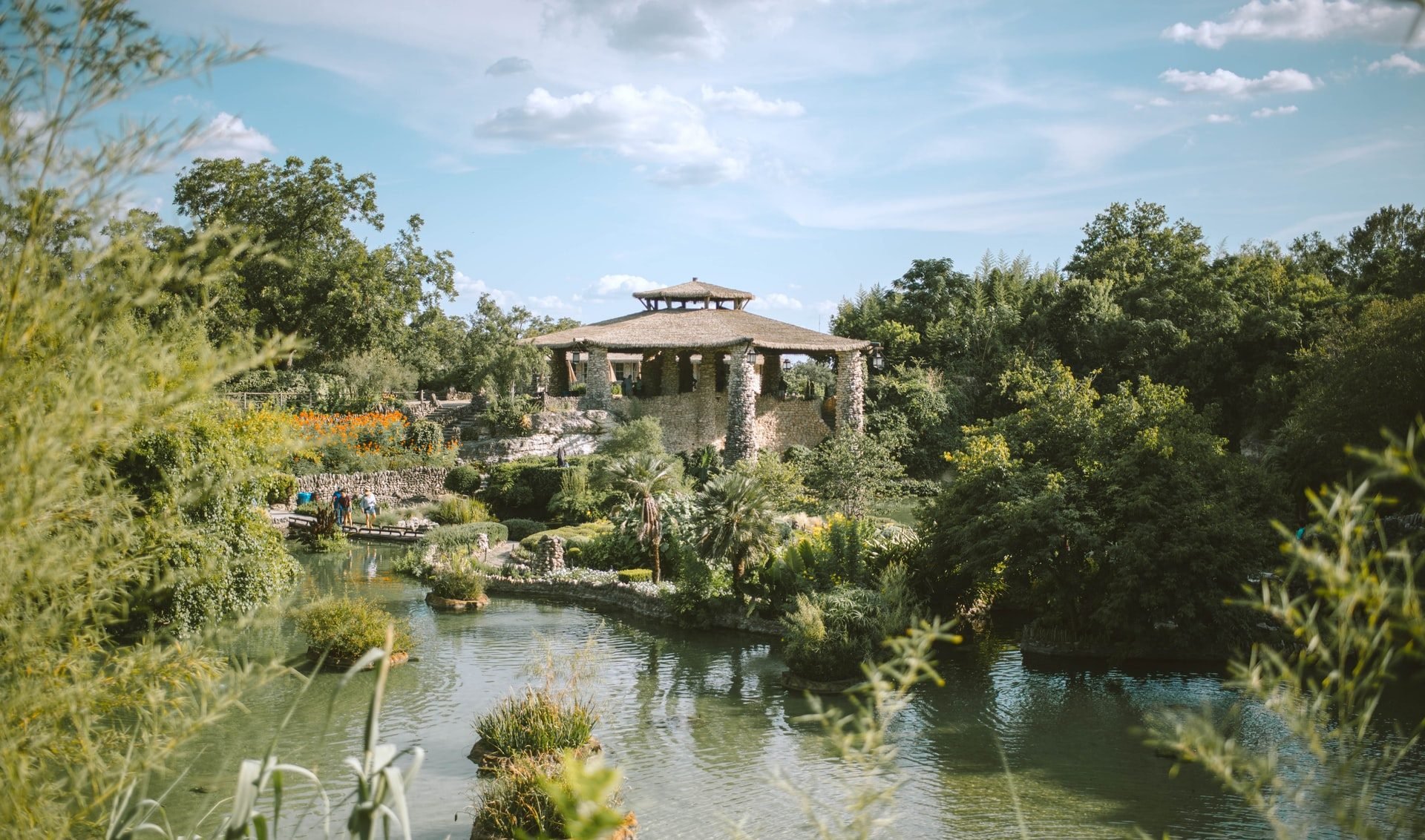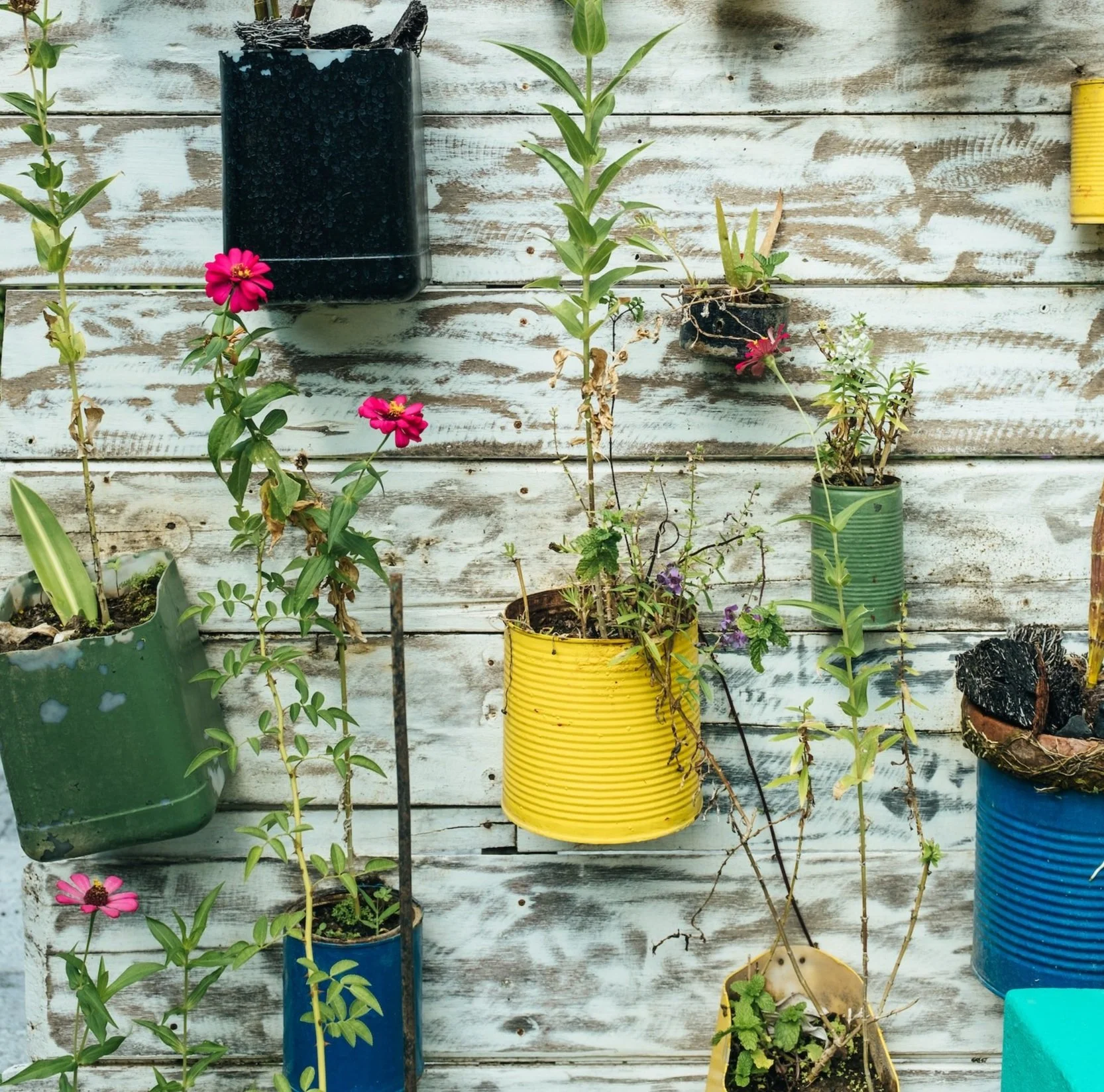Is Alternative Living and Circular Thinking the Solution?
Discover > Farm to Table Eating in Texas > Is Alternative Living and Circular Thinking the Solution?
Living off the land, providing for our people, caring for the environment, and making sure nothing is left behind. A “Waste Free World” is how author Ron Gonen describes it in his new book “THE WASTE-FREE WORLD: How the Circular Economy Will Take Less, Make More, and Save the Planet,”. Beautiful imagery of the Japanese Tea Garden in San Antonio, TX shows a rich history behind it’s 90-year-old walls. From the time it was an operating rock quarry to today, as one of the most loved, educational and cultural resources in San Antonio.
The quarry was shaped into a complex that included walkways, stone arch bridges, an island and a Japanese pavilion. The garden was termed the “lily pond”, and local residents donated bulbs to beautify the area. Exotic plants were provided by the City nursery and the City Public Service Company donated the lighting system. The pavilion was roofed with palm leaves from trees in City parks. Everyday civilians can visit places like the Japanese Tea Garden; and many others worldwide, to get a sense of appreciation for the built and natural environment. And how they can be beautifully intertwined.
As some of us begin growing tired of the traditional 9 to 5 workday, and others sense a disconnect with our environment - the rise of a new era occurs. A “green” era. Filled with innovation & sustainable solutions. Offering hope and inspiration for not only our generation, but future generations to come.
Communities of the Future
Have you ever watched an “alternative living” documentary about tiny homes, ecovillages or earthships? Well imagine this - that’s just the beginning! In order to sustain our global population, we’re going to be seeing a lot more of these green building designs. In the next few decades, we will witness many others going “off the grid” or deciding to join an ecovillage community. And we might even decide to do it ourselves. The Global Ecovillage Network is working to help prepare communities for a regenerative world. There are many valuable resources found on their site if you're interested!
Living the Change is yet another beautifully heartful documentary on Amazon. And it shares such inspiring stories. I was especially moved by the words of Charles Eisenstein. He has an uplifting tone when identifying environmental solutions and doesn’t just focus on all the problems we face. And his podcast “A New and Ancient Story” shares the thoughts and perspectives of people around the world. The stories that often remain “voiceless”, but contribute tremendously to our society. And if you like to listen to podcasts and gain insight on new topics, here's a great list of podcasts on circular economy.
Benefiting from Circular Economy
One of the many things tribal communities and civilizations of the past can teach us - is the basis of circular economy. Moving from a linear to circular economy means focusing on how products are designed, manufactured, sold, refurbished and recycled. It’s considered a framework from global corporations to startups alike. And a platform to amplify opportunities for growth in a natural-resource constrained world. And there are many types of products and services that a community (or individual!) can offer. Here are just a few examples of the circular thinking systems around us:
1. Using (activated) charcoal to make personal care products, and ash/charcoal to enrich the soil. You can also check out the Handcrafted Soap & Cosmetic Guild to find retailers all over Texas!
2. Thrifting & Upcycling Resale Shops.
3. Honey and Maple Production - check out Erika Thompson, the Queen Bee TikTok Star! She’s made many beekeeping videos that are appealing to viewers, fun & educating! You can also search the TexasRealFood Directory for local Artisan producers in your area by zip code or city.
4. Effective Microorganisms (EM) - Microorganism companies are funding some ecovillages around the world! These are mixed cultures of beneficial naturally-occurring organisms that can be used to increase the microbial diversity of soil ecosystem. There is evidence that EM inoculation to the soil can improve the quality of soil, plant growth and yield.
5. Gardening & Composting - By turning food scraps into compost, then enriching the soil with the mixture, you are creating an entire closed loop system. There are many articles on TexasRealFood to help you get started! Check out: No-Dig Farming Basics for Small Gardens
6. Hobby Workshops - Believe it or not, there’s several Drum Making Ecovillages with 3 or 4 different workshops, for several types of drums. The residents sell these drums at festivals to create an income for the community, and some ecovillages also have Effective Microorganism (EM) businesses.
7. Aeroponics and Aquaponics - towers creating biogas and producing food, and innovative aquaponic solutions! Check out Tower Garden in Texas to see how you can grow your own food indoors.
Another astonishing example of an ecovillage using circular economy for community businesses is in the Findhorn Ecovillage in Scotland. This is considered one of the oldest ecovillages in the world. Some of their many businesses include:
Findhorn Foundation - an international center of education conducting programs for approximately 3000 residential guests each year.
Ekopia - a Development Trust providing community based ethical investments
Gaia Education - developing curricula for sustainable community design worldwide
Findhorn College - offering further and higher education sustainability programs
“Closed Loop” Systems
Ron Gonen is the CEO and co-founder of Closed Loop Partners, a circular investment firm that aligns capitalism with positive social and environmental impact by reducing waste and greenhouse gas emissions. Circular businesses provide products and services that make zero waste possible by keeping resources in use in our economy instead of the landfill. These types of businesses can include anything from thrift stores, repair shops, recyclers, sharing services, and so much more.
And if you’re in the Austin area, be sure to check out the Austin Resource Recovery program. You can find out about upcoming events, services, and local studies being done. The resources and support found on their website hope to foster change and connections among local zero waste businesses and community members. There’s even the City of Austin’s Business Retention and Expansion (BRE) Program and Circular Economy Program - offering business support and information services to local circular businesses looking to grow.
There are many things we can learn from circular economy and community living. And maybe this is the future. Living together sustainably, creating what we love, and learning from each other. While this design is a bit abstract for some, it’s what our ancestors knew best. It’s interesting to research these system designs & learning how we can utilize them in today’s world!





